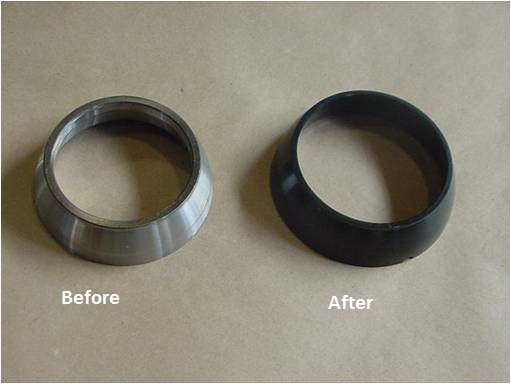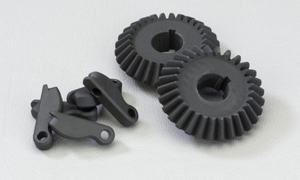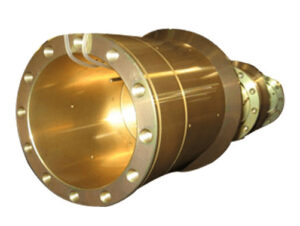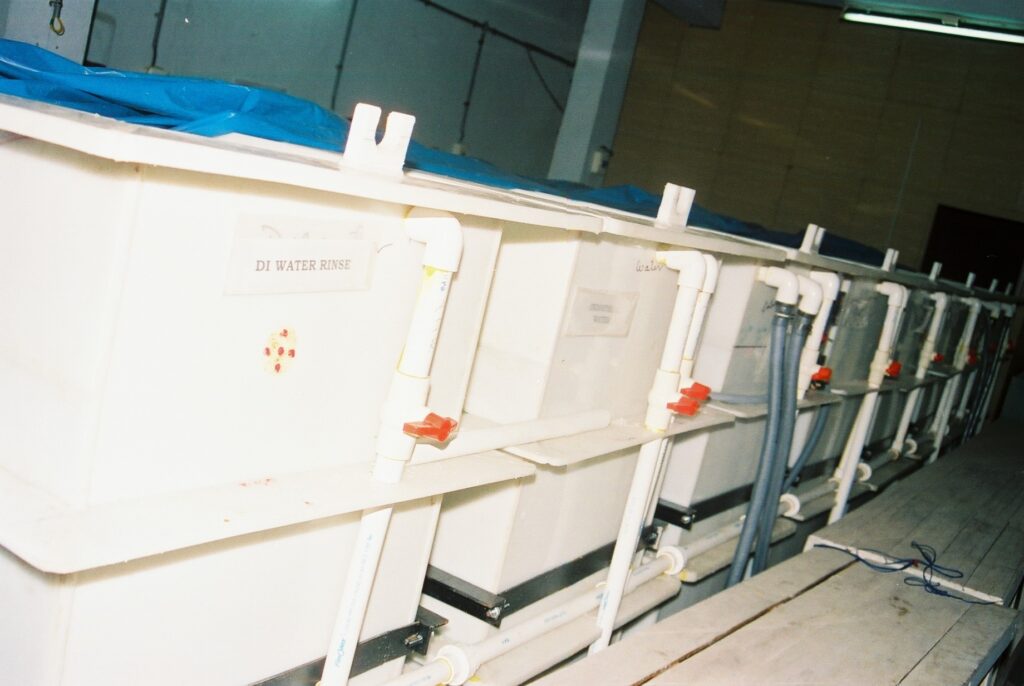Chemical Conversion Coating
Chemical conversion coatings are one of the most cost-effective methods of surface modification of steel substrates. The covered surface is turned into a coating with electrochemical or chemical processes. These coatings involve molybdenum, zirconium, chromium, aluminum, vanadium, phosphate, potassium, cerium, nickel, and zinc-rich layers
Conversion coatings is a generic term used to refer to a coating produced by a chemical or electrochemical treatment of a metallic surface that gives a superficial layer containing a compound of the metal. For ease of explanation we are going to further sub-divide this category into steel conversion coatings, chromate conversion coatings, and anodize which is covered elsewhere.
Steel Conversion Coatings (Black Oxide Coating)
Black Oxide is a conversion coating formed by a chemical reaction with the iron in the metal to form an integral protective surface. (Contrasted to an applied coating which bonds to the metal but does not react chemically.) A black oxide conversion coating is applied to ferrous alloys when oxidizing salts react with the iron to form magnetite (Fe3O4), the black oxide of iron. Though standard Black Oxide is set up for steel, it can be done on other substrates including stainless steel, copper, and brass among others.

Typically black oxide has a post dip of either oil or wax to improve the corrosion protection of the finish. Black oxide offers a nice, matte black appearance at a low cost.
Black Oxide Features:
- Corrosion Resistance (when oiled/waxed)
- Appearance
- Cost Competitive
- Dimensional Stability
Black Oxide Applications:
- Model railroad track
- Firearm components
- Precision bearings
- Tooling
Black Oxide Specifications:
- AMS 2485
- MIL C 13924
- MIL DTL 13924
- AnoBlack SS
Phosphate Coating
 Phosphate, also known by trade names Parkerize and Lubrite, is an immersion process by which small crystalline structures of iron, zinc or manganese are ‘grown’ on steel alloys. There are three main types in use: Iron, Zinc, and Manganese. Iron is primarily used for corrosion resistance as a substrate, or primer, for painting. Zinc is used to prepare automobile and truck bodies as well as appliances before painting. It also is used in cold-forming to extend the life of dies in conjunction with drawing or forming lubricants. Manganese phosphate is often used on piston rings, cam shafts, gears and such as a protection against seizing of the surfaces and wear during the break-in periods. The finish acts to prevent metal to metal contact and serves as a reservoir for oil films. Manganese phosphate is never used as a paint base.
Phosphate, also known by trade names Parkerize and Lubrite, is an immersion process by which small crystalline structures of iron, zinc or manganese are ‘grown’ on steel alloys. There are three main types in use: Iron, Zinc, and Manganese. Iron is primarily used for corrosion resistance as a substrate, or primer, for painting. Zinc is used to prepare automobile and truck bodies as well as appliances before painting. It also is used in cold-forming to extend the life of dies in conjunction with drawing or forming lubricants. Manganese phosphate is often used on piston rings, cam shafts, gears and such as a protection against seizing of the surfaces and wear during the break-in periods. The finish acts to prevent metal to metal contact and serves as a reservoir for oil films. Manganese phosphate is never used as a paint base.
Phosphate Features:
- Corrosion Protection (when oiled)
- Good paint and oil base
- Protects base steel for top coat applications
- Holds lubricants in place for good break-in
Phosphate Applications:
- Retain oil on parts such as gun triggers and barrels
- Adhesion of paint or dry lube on steel parts
- Lubrication during drawing or shaping
- Gears and cam shafts during break-in periods
Aluminium Chromate Conversion Coatings
 Chromate conversion coatings are a varying group that can be done as a standalone finish, used by itself, or as a secondary post finish treatment, used over a metal plating. Chemical Film on Aluminium, also called by proprietary names of Alodine or Irridite, is a thin, clear or yellow conversion coating used as a primer for paint, general protection to prevent aluminium from oxidizing, or used in conjunction with masking of an anodized finish for conductivity properties. While it may be somewhat confusing in that it is sometimes used with another finish when masked off, such as either hard coat or sulphuric anodize, but when we say secondary post treatment it is meant as a chromate over another finish such as Zinc or Cadmium. Chromates are what give the colour options such as yellow, black, or olive drab to Zinc or Cadmium finishes.
Chromate conversion coatings are a varying group that can be done as a standalone finish, used by itself, or as a secondary post finish treatment, used over a metal plating. Chemical Film on Aluminium, also called by proprietary names of Alodine or Irridite, is a thin, clear or yellow conversion coating used as a primer for paint, general protection to prevent aluminium from oxidizing, or used in conjunction with masking of an anodized finish for conductivity properties. While it may be somewhat confusing in that it is sometimes used with another finish when masked off, such as either hard coat or sulphuric anodize, but when we say secondary post treatment it is meant as a chromate over another finish such as Zinc or Cadmium. Chromates are what give the colour options such as yellow, black, or olive drab to Zinc or Cadmium finishes.
Aluminum Chromate Conversion Coatings Features:
- Good base for paint applications
- Protects from corrosion
- Provides good electrical properties
- Easily applied
Chromate Conversion Coatings Applications:
- Adhesion of paint or other organic coating
- Inexpensive immersion protective coating for aluminium
- Cabinetry of electronic power supply
- Applied by brush in field as touch-up for damaged anodize or paint
- On aluminium or mixed metal assemblies that can’t be anodized

